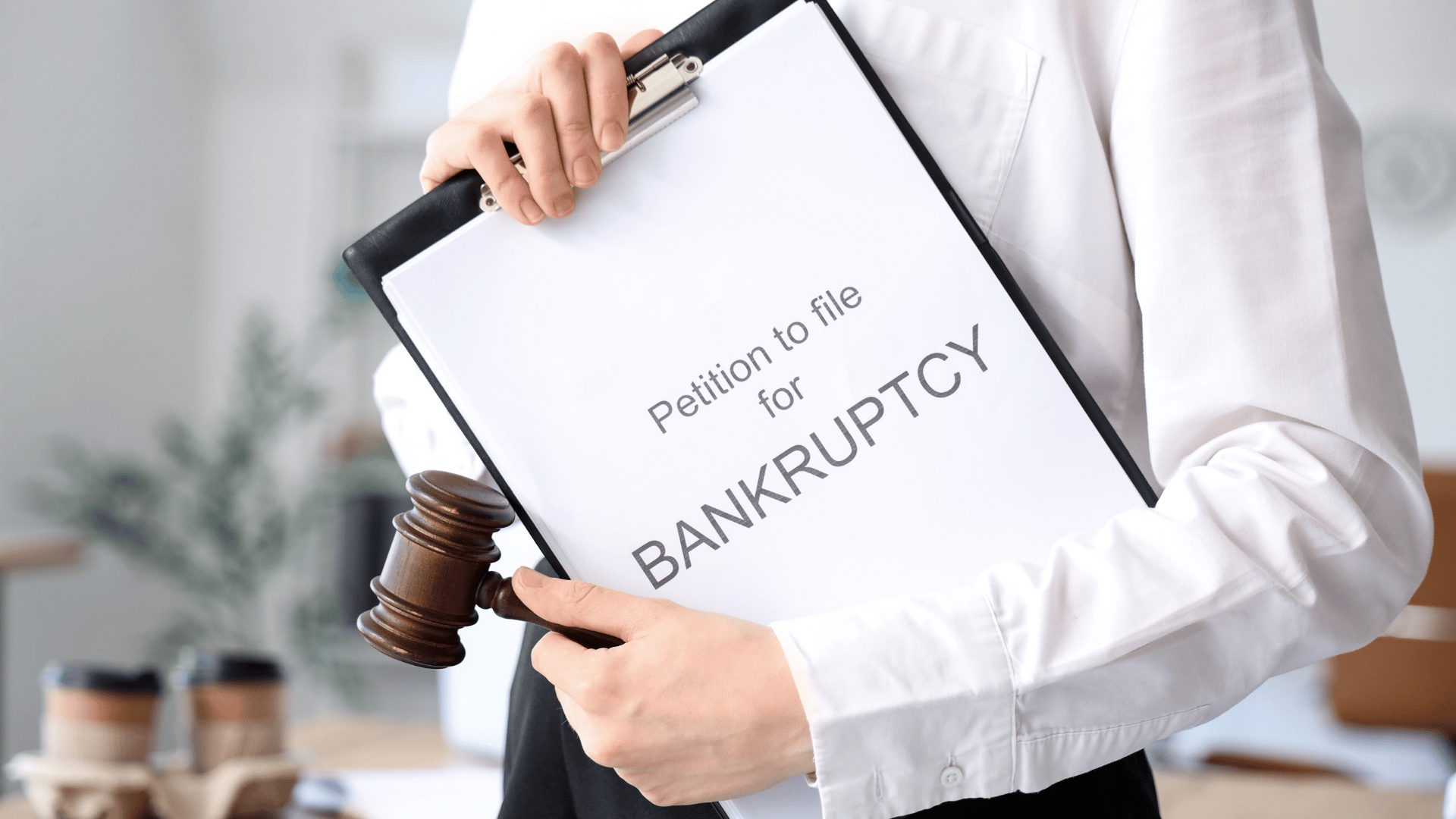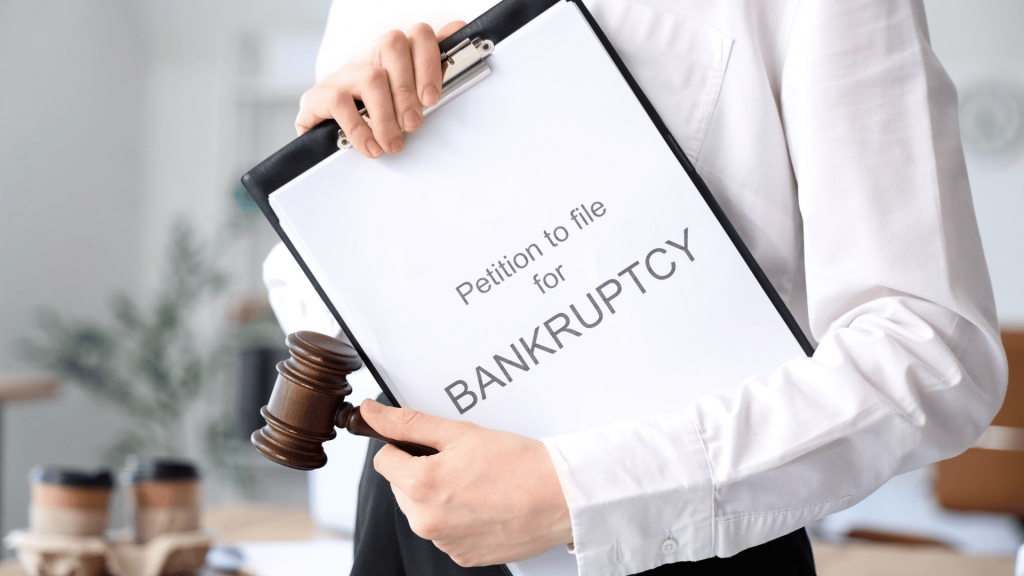Bankruptcy doesn’t have the best reputation. For a lot of people, it feels like a last resort, a sign of failure, or a financial scarlet letter. But none of those things have to be true. If you talk to the experts, they’ll tell you that bankruptcy is a tool that exists to give you relief when things spiral beyond your control. And while it may sound intimidating, there are real, practical upsides to filing that could help you take back control of your life.
If you’re drowning in debt and struggling to see a way forward, it’s worth considering what bankruptcy can actually do for you – not just what it takes away. Contrary to popular belief, it’s not the end. For many, it’s a new beginning.
Let’s explore some of the biggest benefits of filing for bankruptcy – and why it might be the lifeline you’ve been needing.

1. Immediate Relief
As soon as you file for bankruptcy, something powerful kicks in: the automatic stay. This legal protection puts an immediate stop to most collection efforts. That means no more harassing phone calls, letters, lawsuits, wage garnishments, or threats of foreclosure.
If you’ve been losing sleep over creditor pressure, the automatic stay offers a little bit of breathing room. It gives you time to work through the bankruptcy process without the daily stress of debt collectors knocking at your door or blowing up your phone.
2. A Path to Eliminate Unsecured Debts
One of the biggest advantages of filing for Chapter 7 bankruptcy (and in some cases Chapter 13) is the discharge of unsecured debts. That includes credit cards, personal loans, medical bills, utility balances, and payday loans.
If these debts are burying you, bankruptcy can offer a clean slate. The slate may not be spotless – certain debts like student loans or recent taxes typically aren’t wiped away – but eliminating thousands in unsecured debt can provide a life-changing reset.
And no, it doesn’t take decades. Chapter 7 bankruptcy cases are often resolved in a few months, giving you a clear timeline for when things start looking up.
3. Legal Protection From Creditors
Once you file, creditors must go through the court to contact you about your debt. That means you’re no longer alone in those interactions. The court is now part of the process, and so is your attorney (if you’ve hired one).
This legal structure offers protection. Creditors can’t play games or try to scare you into paying. They’re held to strict rules, and if they step out of line, there are consequences. This shift in power is more than symbolic. It reduces your stress and ensures your rights are respected while you work through your financial recovery.
4. A Chance to Rebuild Credit
You might assume bankruptcy will destroy your credit forever. And while your credit score will take a hit initially, bankruptcy can actually help you rebuild faster than struggling for years with unpaid debt.
Think about it. If you’re missing payments, maxed out on credit cards, and defaulting on loans, your credit is already in bad shape. Bankruptcy gives you a line in the sand. After discharge, your debt-to-income ratio improves, and you can start fresh with no lingering balances dragging you down.
Most people actually start receiving credit card offers just months after filing. They’re not the best cards on the market, but they’re legitimate cards that can help you start rebuilding. And within a couple of years, you may be in a stronger position than before you filed.
5. It Can Protect Your Assets (Depending on the Chapter)
People usually assume that filing for bankruptcy means losing everything. That’s not always true. Bankruptcy exemptions protect certain property – like your home, car, retirement accounts, and essential household items – so you aren’t left with nothing.
In Chapter 13 bankruptcy, you’re not actually liquidating anything. Instead, you’re restructuring your debts and agreeing to a manageable payment plan. This approach lets you keep your assets while catching up over time.
Even in Chapter 7, where some non-exempt property might be sold to repay creditors, many filers are surprised by how much they can keep. State and federal exemption laws are designed to allow you a reasonable standard of living.
6. A Real, Legal Path to Financial Recovery
Bankruptcy is part of the law for a reason. It exists to help people who need a structured way out – not to punish them. If you’ve tried budgeting, debt settlement, credit counseling, and nothing is working, bankruptcy is a legitimate solution.
It’s not easy or glamorous, but it is effective. You’ll go through a financial education course. You’ll learn how to avoid the same mistakes in the future. And you’ll leave the process with a clearer view of what matters and what’s possible.
Maybe your credit score won’t rebound overnight. But your stress levels and confidence will. Plus, your future will finally be something you can plan for again with optimism.
Adding it All Up
Ideally, you’ll never find yourself in a situation where filing for bankruptcy is necessary. However, if you do wake up and discover that you’re in a pretty bleak financial situation, it’s good to know that bankruptcy exists (and it’s not the boogie monster that you’ve always believed). In many scenarios, it can actually be a savior. Good luck!

Founder Dinis Guarda
IntelligentHQ Your New Business Network.
IntelligentHQ is a Business network and an expert source for finance, capital markets and intelligence for thousands of global business professionals, startups, and companies.
We exist at the point of intersection between technology, social media, finance and innovation.
IntelligentHQ leverages innovation and scale of social digital technology, analytics, news, and distribution to create an unparalleled, full digital medium and social business networks spectrum.
IntelligentHQ is working hard, to become a trusted, and indispensable source of business news and analytics, within financial services and its associated supply chains and ecosystems











